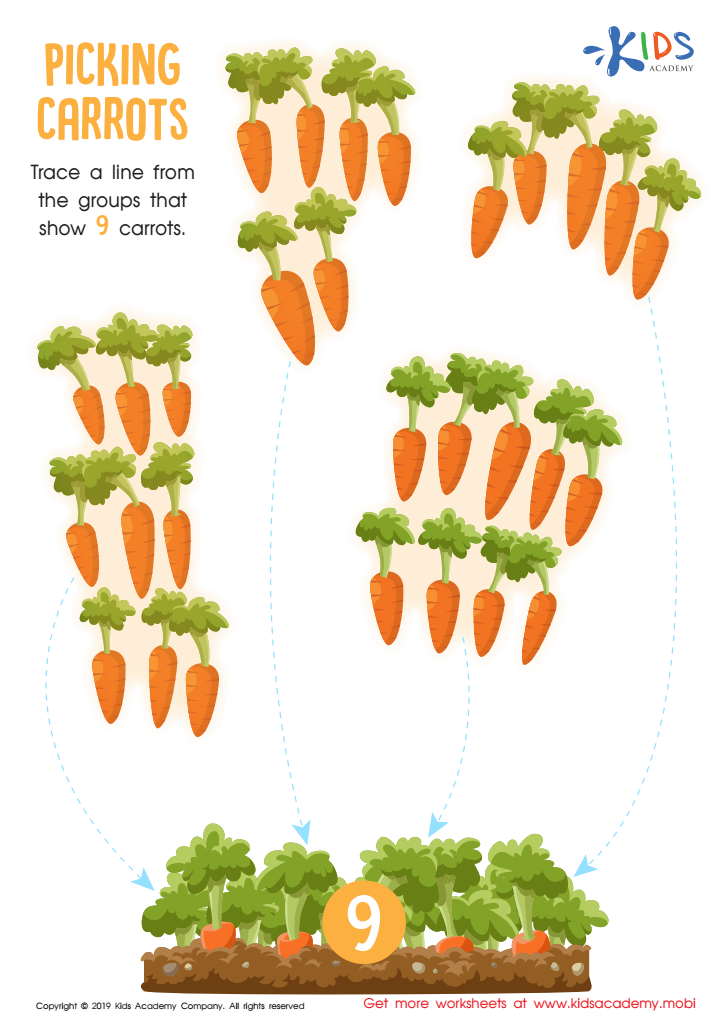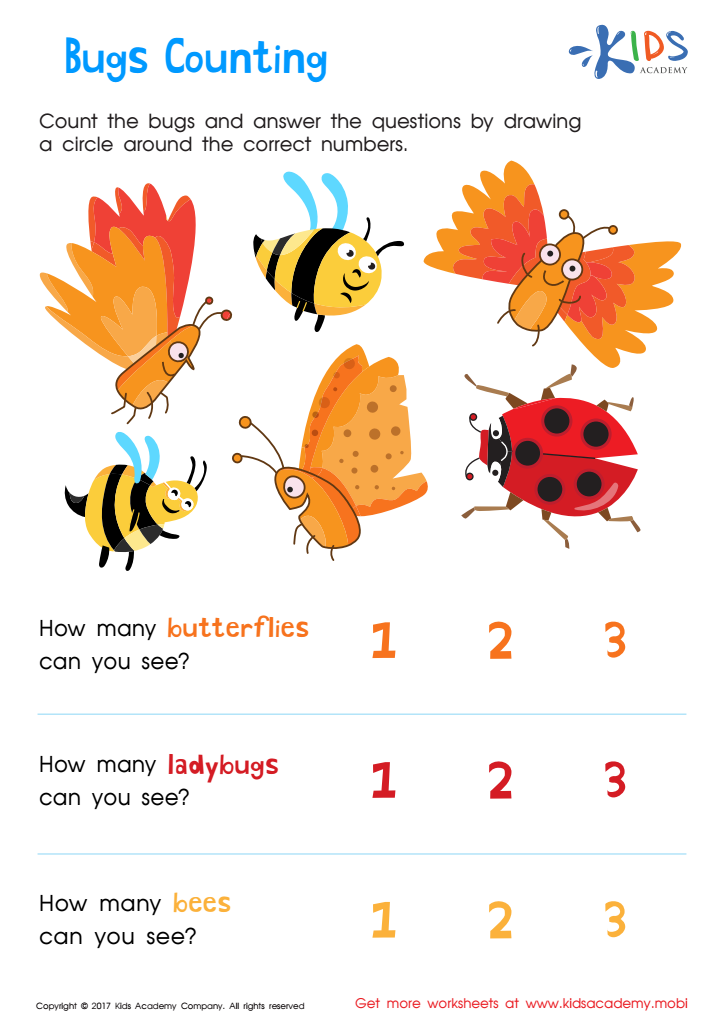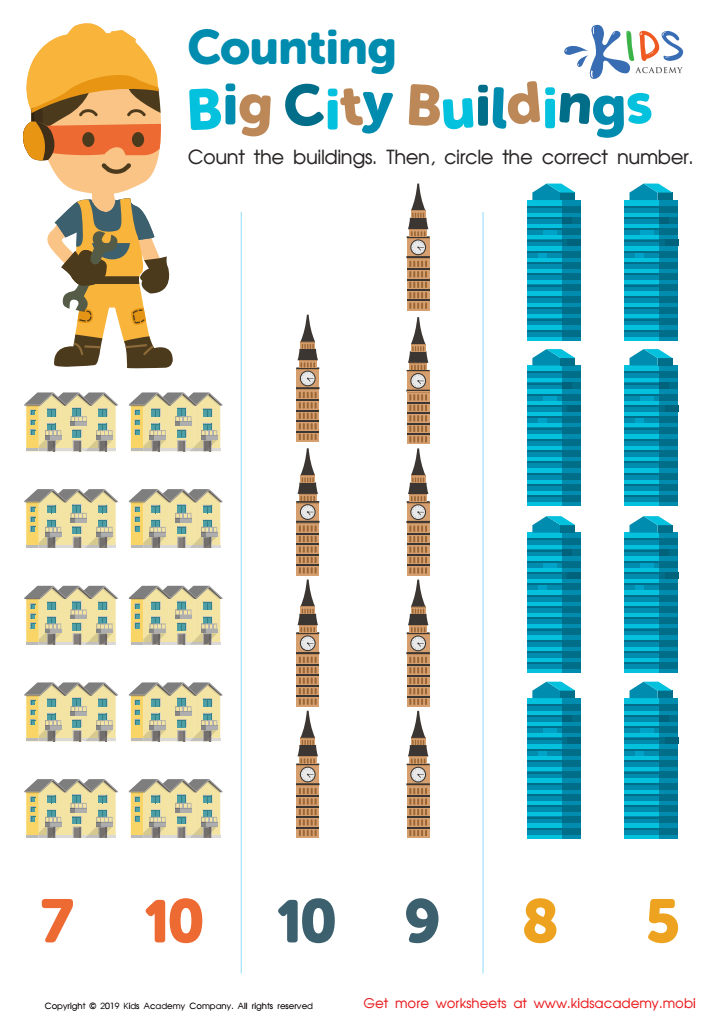Understanding Quantities Easy Numbers Worksheets for Ages 3-8
3 filtered results
-
From - To
Unlock your child's potential with "Understanding Quantities Easy Numbers Worksheets" designed for ages 3-8. These engaging, printable resources from Kids Academy help young learners grasp fundamental math concepts through fun activities. Each worksheet focuses on building strong foundational skills, such as counting, recognizing numbers, and comparing quantities. Perfect for both home and classroom settings, these exercises promote confidence and foster a lifelong love for mathematics. Tailored to various learning paces, they are the ideal tools to cultivate early numeracy and cognitive development in your child. Equip your little one with essential math skills today!


Picking Carrots Worksheet


Bugs Counting Worksheet


Counting Big City Buildings Worksheet
Understanding quantities and numbers in early childhood is a critical part of cognitive and mathematical development, and it sets the groundwork for later learning. For children aged 3-8, grasping the basic concept of quantities and easy numerals helps in several fundamental ways:
First, it builds number sense, fostering an intuitive understanding of numbers, their relationships, and how they are used daily. This foundational knowledge equips children with problem-solving skills and logical thinking, crucial for all future learning.
Secondly, early quantitative understanding is closely linked to language development. Counting, comparing quantities, and recognizing number patterns also enhance vocabulary, especially mathematical language, making it integral to literacy growth.
Furthermore, early competency in numbers creates positive attitudes towards math. When children can easily grasp and manipulate numbers in fun, engaging ways, they develop confidence and a love for learning. This willingness to engage confidently can translate to greater academic successes in other areas.
Additionally, math skills are necessary for real-life tasks, be it following a recipe, sharing treats among friends, or managing time and money. Encouraging early proficiency makes children more successful and independent in everyday tasks.
Recognizing the importance of numbers in early childhood ensures that parents and teachers provide the appropriate tools, games, and experiences to nurture these fundamental skills, setting the stage for lifelong quantitative literacy.

 Assign to My Students
Assign to My Students
















